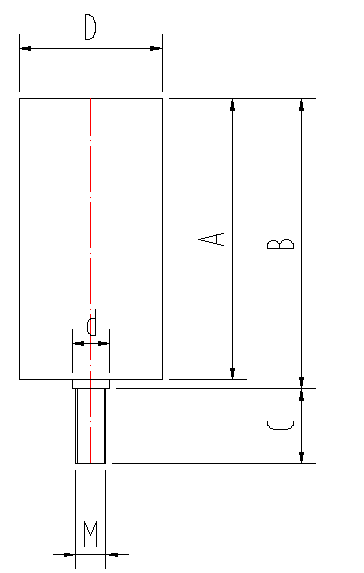 Afrikaans
Afrikaans  Albanian
Albanian  Amharic
Amharic  Arabic
Arabic  Armenian
Armenian  Azerbaijani
Azerbaijani  Basque
Basque  Belarusian
Belarusian  Bengali
Bengali  Bosnian
Bosnian  Bulgarian
Bulgarian  Catalan
Catalan  Cebuano
Cebuano  Corsican
Corsican  Croatian
Croatian  Czech
Czech  Danish
Danish  Dutch
Dutch  English
English  Esperanto
Esperanto  Estonian
Estonian  Finnish
Finnish  French
French  Frisian
Frisian  Galician
Galician  Georgian
Georgian  German
German  Greek
Greek  Gujarati
Gujarati  Haitian Creole
Haitian Creole  hausa
hausa  hawaiian
hawaiian  Hebrew
Hebrew  Hindi
Hindi  Miao
Miao  Hungarian
Hungarian  Icelandic
Icelandic  igbo
igbo  Indonesian
Indonesian  irish
irish  Italian
Italian  Japanese
Japanese  Javanese
Javanese  Kannada
Kannada  kazakh
kazakh  Khmer
Khmer  Rwandese
Rwandese  Korean
Korean  Kurdish
Kurdish  Kyrgyz
Kyrgyz  Lao
Lao  Latin
Latin  Latvian
Latvian  Lithuanian
Lithuanian  Luxembourgish
Luxembourgish  Macedonian
Macedonian  Malgashi
Malgashi  Malay
Malay  Malayalam
Malayalam  Maltese
Maltese  Maori
Maori  Marathi
Marathi  Mongolian
Mongolian  Myanmar
Myanmar  Nepali
Nepali  Norwegian
Norwegian  Norwegian
Norwegian  Occitan
Occitan  Pashto
Pashto  Persian
Persian  Polish
Polish  Portuguese
Portuguese  Punjabi
Punjabi  Romanian
Romanian  Russian
Russian  Samoan
Samoan  Scottish Gaelic
Scottish Gaelic  Serbian
Serbian  Sesotho
Sesotho  Shona
Shona  Sindhi
Sindhi  Sinhala
Sinhala  Slovak
Slovak  Slovenian
Slovenian  Somali
Somali  Spanish
Spanish  Sundanese
Sundanese  Swahili
Swahili  Swedish
Swedish  Tagalog
Tagalog  Tajik
Tajik  Tamil
Tamil  Tatar
Tatar  Telugu
Telugu  Thai
Thai  Turkish
Turkish  Turkmen
Turkmen  Ukrainian
Ukrainian  Urdu
Urdu  Uighur
Uighur  Uzbek
Uzbek  Vietnamese
Vietnamese  Welsh
Welsh  Bantu
Bantu  Yiddish
Yiddish  Yoruba
Yoruba  Zulu
Zulu High-Quality Designed Conveyor Components for Efficient Material Handling
Designed Conveyor Components Enhancing Efficiency in Material Handling
In today's fast-paced industrial environment, the efficiency of material handling systems is paramount. At the heart of these systems are conveyor components, which play a critical role in the movement and management of goods. With advancements in design and technology, modern conveyor components have evolved to optimize performance, reduce costs, and improve overall productivity.
One of the key elements in designed conveyor components is the material used. High-quality materials enhance durability and reliability, which are essential for continuous operations in demanding environments. For instance, stainless steel and aluminum are commonly utilized for their strength, resistance to corrosion, and lightweight properties. This ensures that conveyors can handle heavy loads without compromising their structural integrity.
Custom-designed conveyor components also cater to specific industry requirements. For example, food and beverage industries often require conveyors that adhere to strict hygiene standards. In such cases, components such as modular plastic belts and easy-to-clean surfaces are utilized to facilitate thorough sanitation processes. Similarly, industries dealing with hazardous materials may benefit from conveyors that feature sealed systems or specialized coatings to ensure safety and compliance with regulations.
designed conveyor components

Moreover, the design of conveyor components has become increasingly modular. This modularity allows for easy customization, enabling businesses to adapt their systems as needs change. Components such as pulleys, bearings, and drives can be mixed and matched to create a conveyor system that is tailored to specific operational requirements. This flexibility not only increases efficiency but also reduces downtime during upgrades or repairs.
Another important aspect of designed conveyor components is their integration with automation technologies. Modern conveyors are often equipped with smart sensors and control systems that streamline operations. These systems provide real-time data on speed, load, and maintenance needs, allowing for proactive adjustments and minimizing disruptions. Additionally, automated conveyors can work seamlessly with other machinery, creating a fully synchronized production line.
In conclusion, designed conveyor components are crucial for optimizing material handling processes in various industries. By focusing on durable materials, customizable designs, and integration with automation technologies, businesses can significantly enhance operational efficiency and reduce costs. As industries continue to evolve, the importance of well-designed conveyor components will only grow, paving the way for smarter, more efficient systems. The future of material handling lies in these innovations, ensuring that companies can meet the demands of a rapidly changing market.
-
Revolutionizing Conveyor Reliability with Advanced Rubber Lagging PulleysNewsJul.22,2025
-
Powering Precision and Durability with Expert Manufacturers of Conveyor ComponentsNewsJul.22,2025
-
Optimizing Conveyor Systems with Advanced Conveyor AccessoriesNewsJul.22,2025
-
Maximize Conveyor Efficiency with Quality Conveyor Idler PulleysNewsJul.22,2025
-
Future-Proof Your Conveyor System with High-Performance Polyurethane RollerNewsJul.22,2025
-
Driving Efficiency Forward with Quality Idlers and RollersNewsJul.22,2025





























